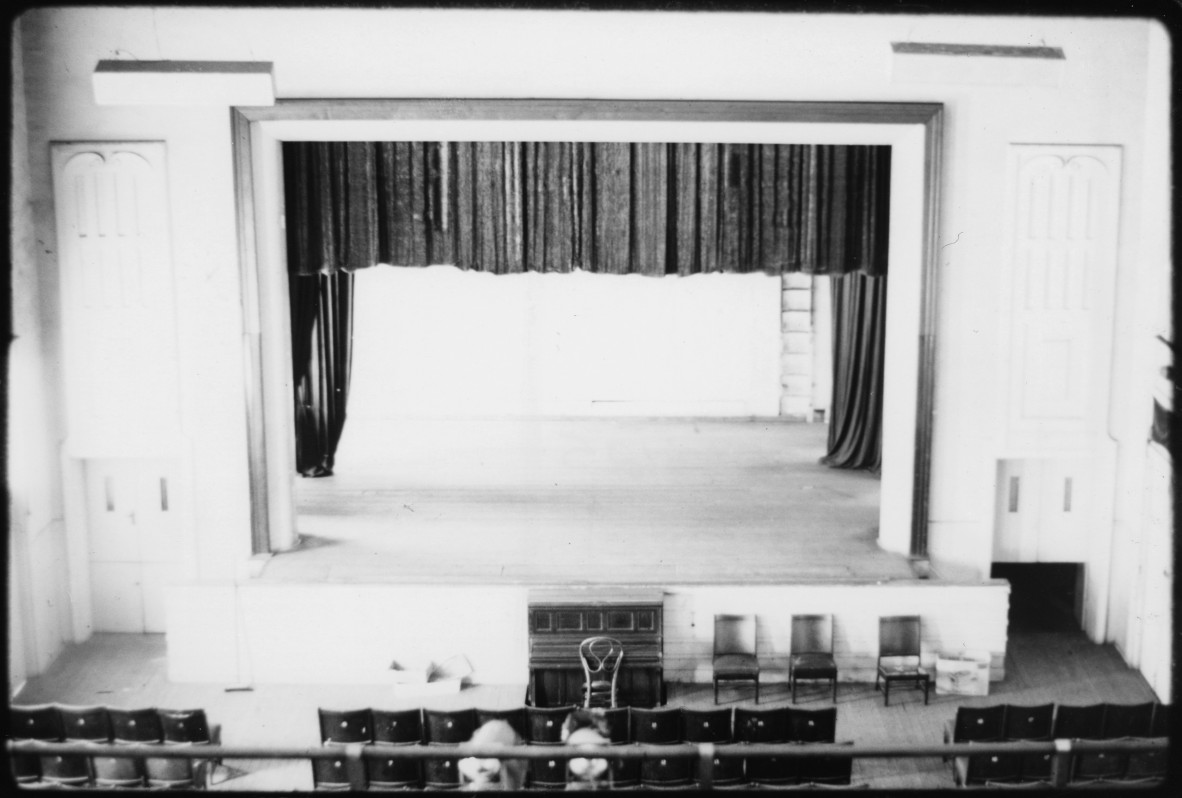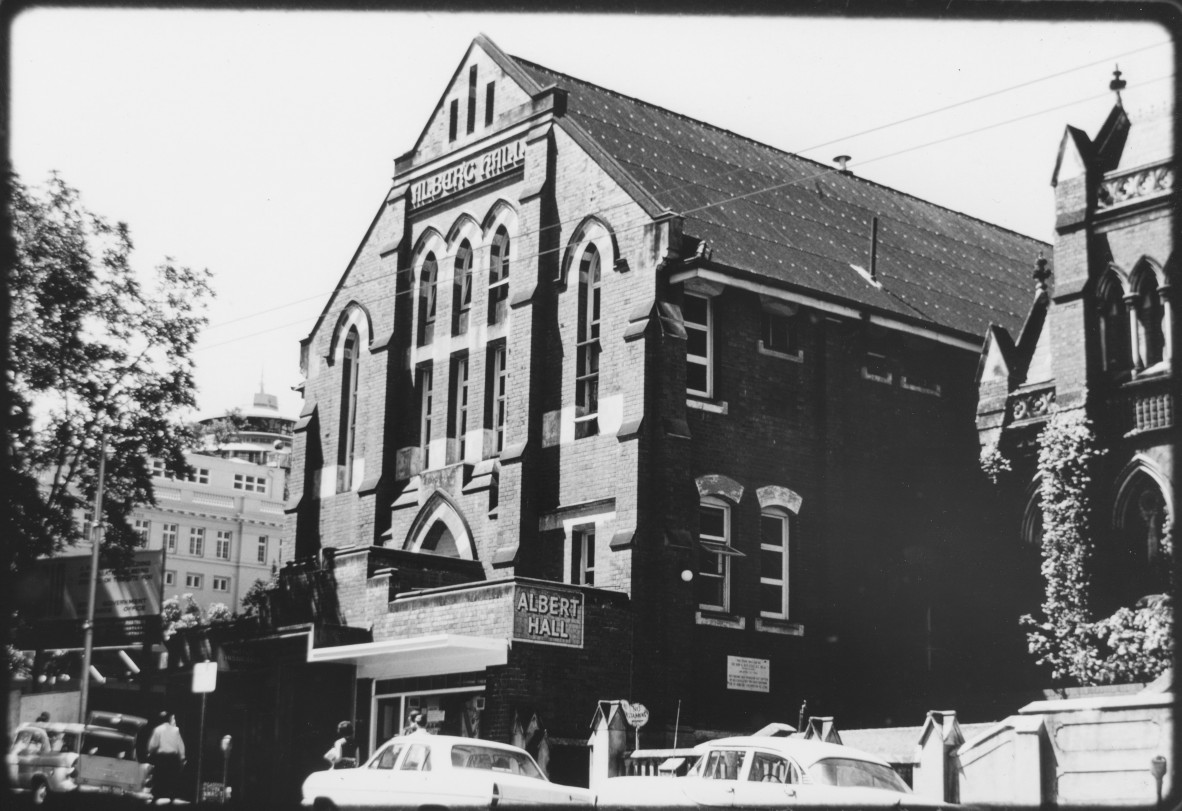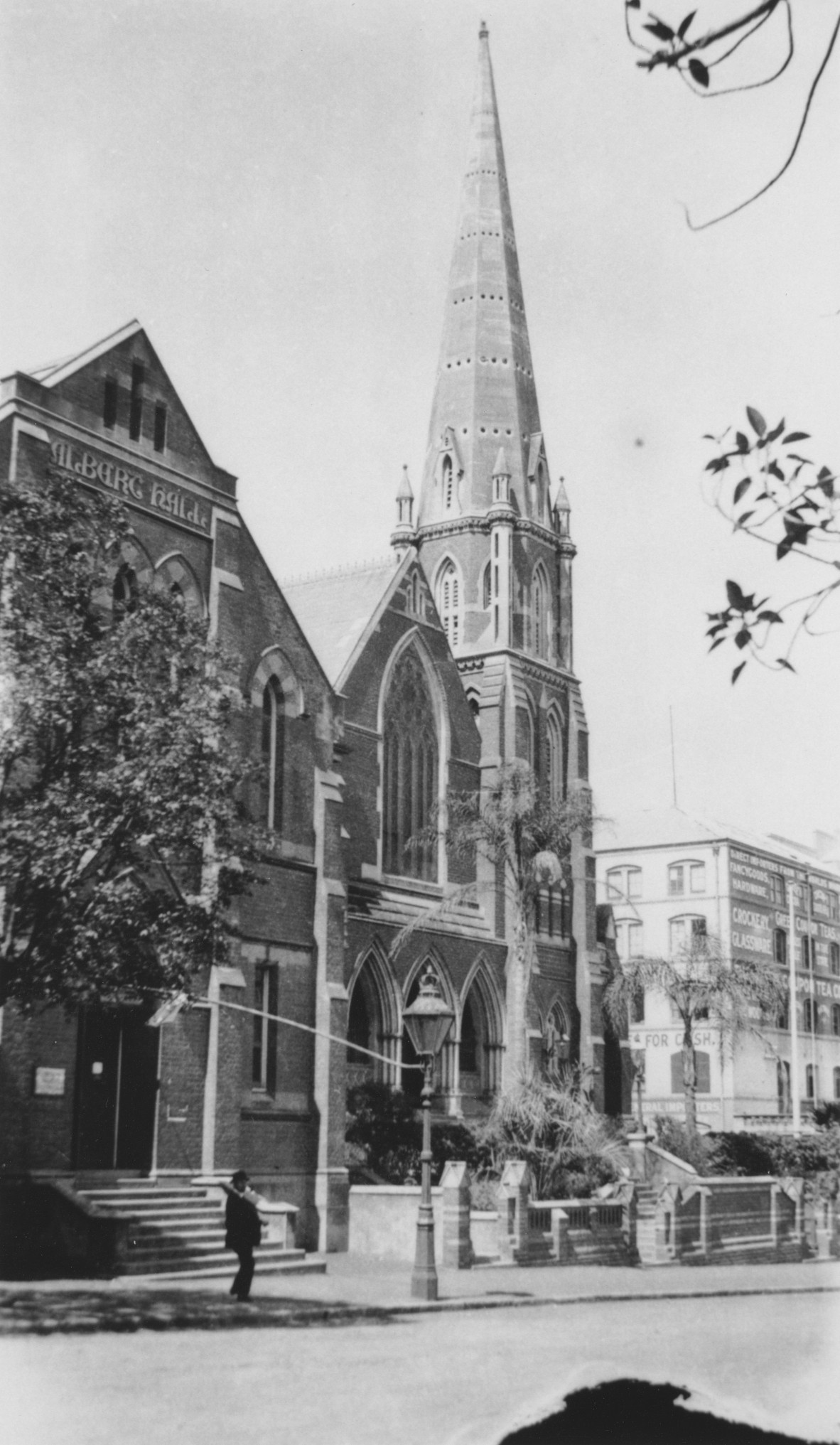All the world's a stage - but do you remember this one?
By JOL Admin | 6 November 2018
Guest blogger: Emeritus Professor Peter Roennfeldt - recipient of the 2018 Letty Katts Award

Interior of the Albert Hall, Brisbane, 1967. From Acc.84-8-12. John Oxley Library, State Library of Queensland
An empty auditorium facing a stage that is full of potential – if only walls (and floorboards) could talk!
From its opening in 1901 until its demolition in 1969 to make way for Brisbane’s first skyscraper (the SGIO / Suncorp Building), Albert Hall was a much-loved venue for Brisbane’s performing arts scene and the community in general. Countless concerts, theatrical productions, film evenings, eisteddfod competitions, lectures, meetings, conferences and political rallies took place there. Albert Hall was also the venue for some of the earliest live radio broadcast performances in the 1930s, and the ABC’s presence also extended to popular ‘Concerts for the armed forces’ in the 1940s.
Visiting celebrities presented recitals in Albert Hall, as did local musicians and aspiring students as a benchmark of their professional standing. Some of the many annual teachers’ studio concerts featured special treats such as ‘Mrs Harry Reeves’ Banjo and Mandolin Club’ in the 1920s and Bessie Dougall’s ‘Mastersingers Ladies’ Choir’ in the 1930s. The innovative Austral Choir Recitals and those sponsored by Music Teachers’ Association of Queensland also took place there. Chamber music ensembles also found in Albert Hall an ideal venue with its good acoustics, including the Brisbane Chamber Music Society of the 1920s, the Queensland State String Quartet of the postwar years and the Musica Viva Society in the 1960s.

Image of the Albert Hall, 1967. John Oxley Library, State Library of Queensland. Neg 46126
In addition to many church-related events presented by Albert Street Methodist Church and other denominations, Albert Hall was the venue for performances and awards ceremonies of numerous schools, tertiary institutions and examining bodies. It was also used by local ballet studios and visiting dancers, as well as elocutionists, magicians and puppeteers. Over the years many miscellaneous events which were clearly ‘of their time’ took place as well, such as the ‘Gramophone concerts’ of the 1920s, ‘Austerity cooking demonstrations’ during the War, and ‘Spelling bees’ and ‘Talent quests’ during the 1950s.

Image of the Albert Hall, Brisbane, ca.1935. John Oxley Library, State Library of Queensland. Neg 182995
Due to its central location adjacent to King George (formerly Albert) Square, Albert Hall was ideal for any presentation that was likely to attract a medium-sized audience, unlike the City Hall which was better suited to larger events. Furthermore, after four decades as a basic single-level auditorium, Albert Hall was remodeled in 1941 with a proscenium stage and additional balcony seating, which instantly increased its desirability for local companies. By the end of the 1940s it was the mainstage venue for all of Brisbane’s many pro-am dramatic societies, so that during the 1950s Albert Hall was in use for up to 150 days each year. A very busy venue by any standard!
The State Library of Queensland’s Letty Katts Fellowship holder, Emeritus Professor Peter Roennfeldt is currently researching the history and legacy of Albert Hall. In addition to those already accessible through the State Library's catalogue, these images have recently been digitised and will soon be available. But most importantly, if you have personal or family memories and/or memorabilia relevant to this important aspect of Brisbane’s past, please contact us.
Comments
Your email address will not be published.
We welcome relevant, respectful comments.